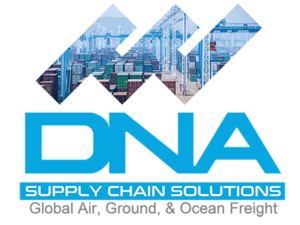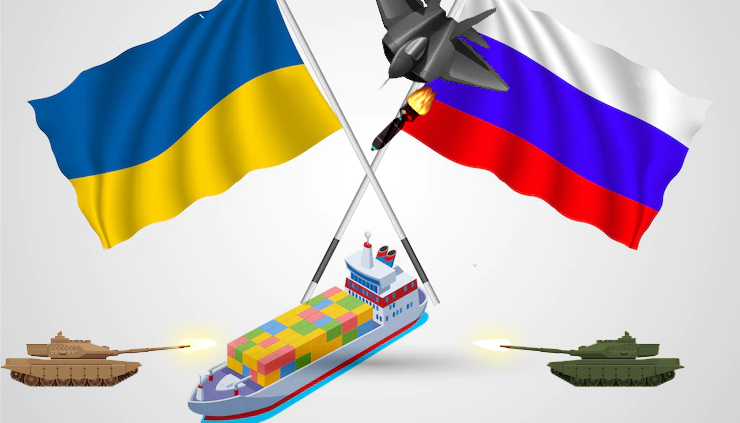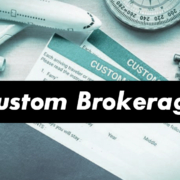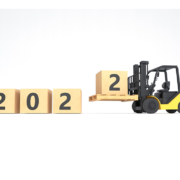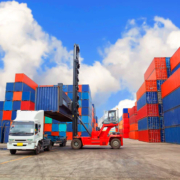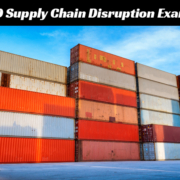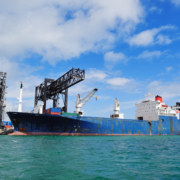The brutal Russian War on Ukraine represents a dramatic transition after centuries of consistency, violating fundamental values of democracy and the rule of law, with serious consequences for millions of people’s livelihoods. We are closely monitoring current events and trying to gather information and intelligence to assist the supply chain. A preliminary round of investigations among our members revealed that, like with any crisis, their primary concern is for the people directly involved, their safety, and very well.
Several aspects of the mobility ecosystem, such as the leading industrial supply industry, are currently being impacted. Some members have manufacturing facilities in Ukraine as well as rely on processes in Russia for a portion of their work. As a result, the industry is experiencing effects in terms of production, workforce, trade, and cross-border maneuverability of people and goods. All this is happening due to Russian War on Ukraine.
In terms of numbers, the automotive industry in Russia and Ukraine is as follows:
Ukraine’s automotive sector is primarily concentrated in the country’s west, with clusters primarily focused on the manufacture of wiring and cables, as well as aftermarket production. Manufacturing facilities are located in the country for seven European as well as several international suppliers. Imported products of automotive components into the EU from Ukraine totaled €23.3 million in 2021, and given the obvious focus on wiring but also cables, we are still seeing relatively brief disruptions, as Volkswagen and Skoda recently announced. Exports to Ukraine totaled €855 million, ranking it 42nd among EU automotive suppliers’ export destinations.
Russia has a sizable automotive industry, employing approximately 600,000 people, or about 1% of the total workforce. Numerous OEMs, mainly Hyundai or Kia, and yet also Stellantis, Citroen, and Toyota, have such a strong presence in Russia, with 34 vehicle manufacturing arrangements but instead production plants. And over 30 European distributors have plants in the country, and foreign investment besides European suppliers totaled €2.3 billion between 2010 and 2021. In 2018, Russia produced 1,767,674 vehicles, currently ranked 13th among car-producing nations and accounting for 1.8 percent of global production.
Sanctions 2014:
Since 2014, listing sanctions have limited many suppliers’ business operations and, as a result, the degree toward which Russia is accepted worldwide supply chain. However, given the size of a domestic market, a considerable supplier presence has persisted. Russia is heavily reliant on auto parts imports. In comparison, imported goods of auto parts into the EU from Russia amounted to €113 million throughout 2021, while exports to Russia totaled €3.2 billion, trying to make it the EU’s fifth-largest export destination.
Major Participants:
Ukraine or Russia are major participants in the automotive value chain. Ukraine accounts for 29 percent of all steel shipped into the EU. It is one of the biggest providers of a variety of noble gases in use in chip manufacturing, particularly neon, also used in laser beams that laser engrave features on with chips. According to an industry expert quoted in the Financial Times, Ukraine accounts for 25percentage points of global neon materials. Russia also represents:
- 9 percent of primary aluminum imports into the EU
- 42 percent of semi-finished steel imports into the EU
- Palladium supply accounts for 42% of the total supply
- 12% of the platinum supply
- 9% of the rhodium supply
- Vehicle batteries consume 11.2 percent of the world’s nickel production.
The Russian War on Ukraine initial effect on auto suppliers:
It’s safe to say also that Russian war onUkraine must have dramatically shifted these same risks facing supply chains, along with all the economic and geopolitical uncertainties that entail, said Secretary-General Sigrid de Vries. Our sector does everything it can to perform its part, from providing practical assistance to employees inside the region to implementing new sanctions-imposed boundaries and making preparations for alternate solution supplies to maintain operations running. European suppliers already were facing many challenges, she continues, and the crisis would then likely only exacerbate the problem for the industry.”
The crisis, for example, could exasperate the pressure just on worldwide chip shortage, which also began all through COVID-19 and is at the heart of the sharp decrease in vehicle production. The shortage of chips will only worsen, if the problem is not solved in the coming years. The supply of key raw materials will also be impacted.”
Costs of materials and energy:
Major portions of the supply of raw material from Russia to the EU have been halted due to logistical issues, bank as well as payment issues, or compliance concerns. Suppliers who rely on some steel products, for example, have had all deliveries halted since the finish of last week. Automobile suppliers are presently bracing for the shortfall of critical materials such as neon gas for tracking devices, palladium for emissions controls, and copper for lithium-ion batteries. Before the Ukraine conflict, electricity prices were on the rise.
Europe, in particular, will likely bear the brunt of future energy price increases, as it is reliant on Russia for oil and gas. Oil prices have risen globally as buyers have effectively shunned Russian oil supplies. The factors affecting electricity prices and their interconnections necessitate monitoring and appropriate policy and regulatory conclusions.
Goods transportation and border controls:
Export restrictions & controls are causing problems so not only authorities and also freight forwarders must be aware of new restrictions and the millions of different technologies and products traded among Russia and the EU.
The Russian War on Ukraine crisis is causing disruptions in global transportation, the full extent of which will be felt in the coming days. Only Polish transport companies employ 103,000 Ukrainian motorists, who have either found their way to the field of battle or are attempting to bring one‘s families to safety. Some truckers are no longer capable of crossing borders, causing trucks and trailers to be separated as the trailer enters the country and continues with some other truck/driver.
Fuel to Fire:
Cargo train lines between both the Eu and The UK (via the Eastern bloc) are presently disrupted. It is critical both in directions for component and raw material imports as well as finished goods exports. Air travel is also halted. Due to the cancellation of Russian airfields to Western airlines, EU logistics companies have suspended shipments to Russia until further notice. Shipping to Belarus as well as Ukraine has also been hampered because Russian War on Ukraine.
That most of these businesses rely on international operations as well as the cross-border transport of products. The requirement of long-term medium strategy is urgent. A strategic approach to avoid interruption and defend the workforce would be beneficial to the sector.
EU Sanctions:
In answer to Russia’s decisions throughout Ukraine, the EU tried to impose a number of draconian measures. The existing package includes export restrictions for dual-use goods but also technologies, trade bans for increased defense technology solutions, export bans for the aviation and space industries, financial sector restrictions, and measures against individuals and their assets. Although only a small number of automotive components are on the list of prohibited exports, the impact on auto parts trade between both the EU and Russia is significant, as various kinds of sanctions reinforce one another.
- Outsource restrictions on the dual items: The EU placed significant restrictions on dual-use goods export markets, which may aid Russia’s technological progress in the defense and security sectors. Automotive distributors are no longer permitted to sell one at all of the dual-use items listed in the regulation to every legal or natural person or company for its use in Russia. This list contains items that are used for two very different civil and military reasons. Most automotive components are not intended for military use, so the direct effect is limited. Nonetheless, a company exporting, say, a detector or GPS solution to Russia will need to determine whether the product is affected but also, if not, how this can certify to the customs department that this is not impacted by a dual limitation.
- Additional defense technology export ban: The new proposals furthermore prohibit the export of the wide range of items not on the dual-use list. Legislation 833/2014 now features a new Annex VII with products which the EU chooses to believe might make a contribution to Russia’s military or technological advancement, or perhaps even the advancement of a defense and security sector. This list is much longer and will make it difficult to export engines or engine parts for commercial vehicles, for example, because exporters will find it difficult to help ensure that their elements do not finish up in military vehicles, although this is unlikely.
- People: A total of 654 individuals, as well as 52 entities, have now been designated under the EU’s Russian sanctions regime, which includes an investment freeze or a prohibition on trying to make funds or financial resources available to or for the benefit of the listed persons. Entities owned and controlled by a restricted individual or entity are generally considered to be subject to restrictions. As a result, automotive suppliers should examine the ownership of both clients as well as supplier companies to ensure that they are not controlled by persons or organizations on the list.
- Because of the prevalence of inadvertent ownership and the high level of concentrated ownership among economic elites, it is difficult to ensure that a business partner is owned in some way by an individual or persons on the list. Legal implications will weigh more heavily on corporate strategy in Russia, potentially affecting imports of goods such as aluminum, palladium, and steel.
- SWIFT: The estimated exemption of 7 Russian banks from the SWIFT financial sector will have a further effect on organizations, as it will make obtaining payment for the goods delivered much more difficult.
Conclusion:
The United States, the United Kingdom, Japan, and other countries imposed their sanctions. Russia may also take countermeasures, such as freezing the funds of foreign firms and nationals. It is worth noting that the EU will announce new sanctions against Belarus this week. According to Reuters, “the goal will be to pause exports of further Belarusian goods, which will include natural resource fuels, tobacco, wood, cement, and iron steel.” The EU also will close some of the remaining loopholes on potash exports.
Clear and accurate information is critical in this context for automotive various suppliers. The disaster of Russian War on Ukraine will be great. Many businesses, in particular, will require useful guidelines for their application or will have questions specific to their situation when it comes to sanctions.
